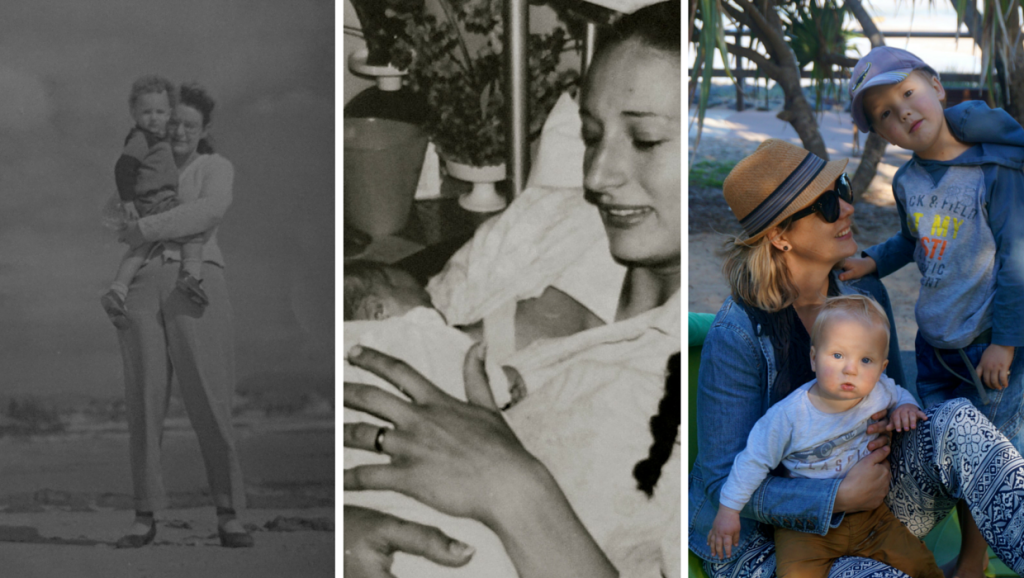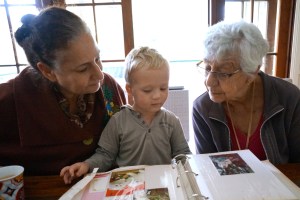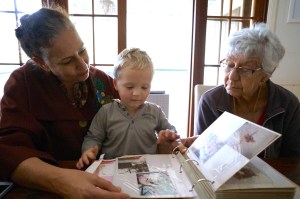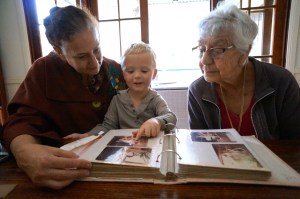But I had an inkling that things weren’t quite that rosy. So I sat down with my mother and my grandmother over coffee and we chatted about motherhood, past and present. What has changed about being a mum and what hasn’t.
Turns out brand new mothers have always received conflicting advice about their babies. Doctors, in-vogue parenting techniques and grandmothers have never agreed. Paid work has always been important. And the village we all crave left mothers all alone long before my mother and grandmother had children.
My grandmother came to Australia as a teenager after the Second World War. Her family left a battle-scarred Germany which had no place for them. Her mother worked full-time as a nurse. It was a common post-war story, marking a distinct change in a mother’s role in society. My grandmother told me that back in Europe her mother never worked, indeed a working mother would have been frowned upon. It was seen as an indication that the husband and father was shirking his responsibilities and not doing enough for his family. But in Australia, there were lives to re-build and no place for pride. Work was a necessity.
When my grandmother had her own children, she stayed home with them until her youngest started primary school. Then she worked in a tea-house from 10 until 2 while the kids were at school. Most women looked for work to help supplement the family income within hours that suited school life. If you worked in an office prior to having babies, you returned. And those offices didn’t change much. There were no leaps of technological change to master. No catch-up to play. My grandmother stressed that no-one she knew saw their return to paid work as a career or a way to escape boredom. It was what it was — a way to supplement the household income. The children and their care were always her primary responsibility and priority.
By the time my mother had children, women were carving out careers and starting their families much later. There was a definite choice to be made — career or kids. As a young mother, mum felt that her choice was frowned upon. She was made to feel inferior for having her babies in her early twenties. That she wasn’t contributing to society in the right way. When I was about ten years old my mother headed back to part-time work. She never returned to the career she had prior to having children. She found value in unpaid work when she run the local playgroup and was the treasurer of the primary school P&C.
I asked my mum and grandmother whether they felt supported as young mothers, whether they had a village. They both answered with a laughing “No way.” My straight-talking grandmother pointed out, “You don’t get a village unless you live in a village. If you live in a city, you have your family if you are lucky.” So much for my romantic notions.
“And don’t forget men being involved with their kids and housekeeping is pretty new,” my grandmother added. Her husband had actually been pretty great with helping with the household, but it was seen as distinctly odd at the time. My own dad kept a more traditional line.
Despite career opportunities opening up, men being more involved with child care and time saving technology, both my grandmother and mother think it is harder to bring children up today.
“There is no freedom,” my grandmother told me. She and her friends would pile their un-secured children and an assortment of dogs into a ute and go for a drive. The kids would play down the local park without supervision. None of those things were considered risky. There was no competition for a child’s imagination to develop. Toys were simple. Screens weren’t pervasive.
By the time I was a child, my mother felt she was already fighting commercialism and other people wanting to bring up her kids. My grandmother wondered how any modern child over the age of 3 still believes in Santa Claus. The magic of childhood is so short now. The moon is no longer made of cheese, but kids know (or can quickly google) that it’s 3,475 km wide and 384,400 km away from the earth. “But everything is pre-chewed”, commented my grandmother. They know so much, but what have they figured out for themselves?
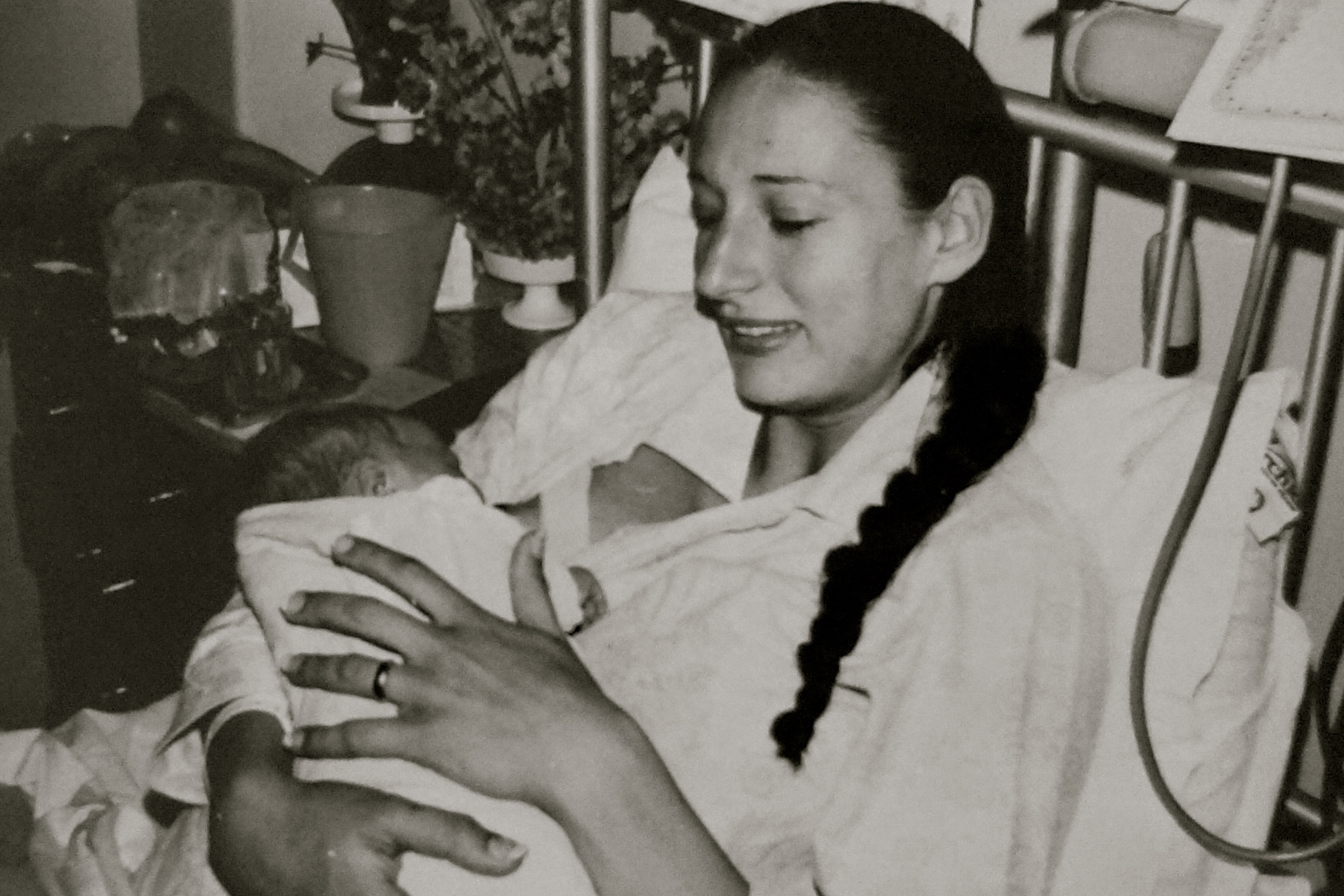
When I asked about their favourite period of motherhood, they both smiled fondly and recalled the pre-school and early primary school days as the most enjoyable. The period of time I am in right now with my boys. A time of wonder and imagination (if I can guard against distractions and defy a few rules).
So perhaps motherhood hasn’t changed as much as thought. But childhood itself has changed drastically. And maybe we need to start building those mythical villages to protect it.
Have you ever talked to your mum or grandma about the way they mothered?
More from the mumhood:
- Am I the Only Mum Who Still Thinks It Takes a Village?
- The Strange Thing That Made Me Feel More Like a Mum Than Ever
- How Far Apart Should You Space Your Kids?
Images: Robyna May
